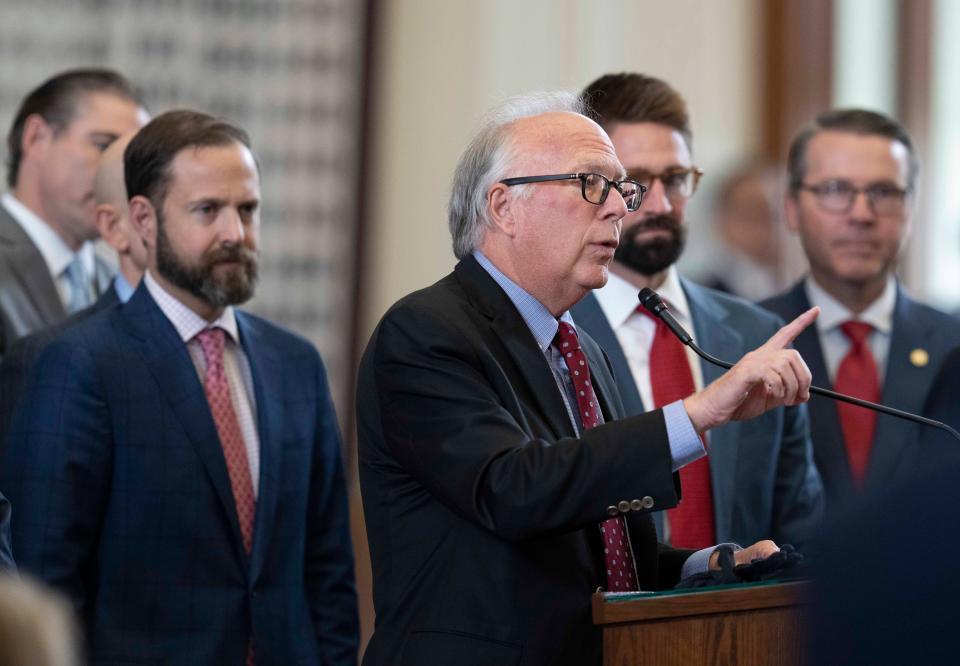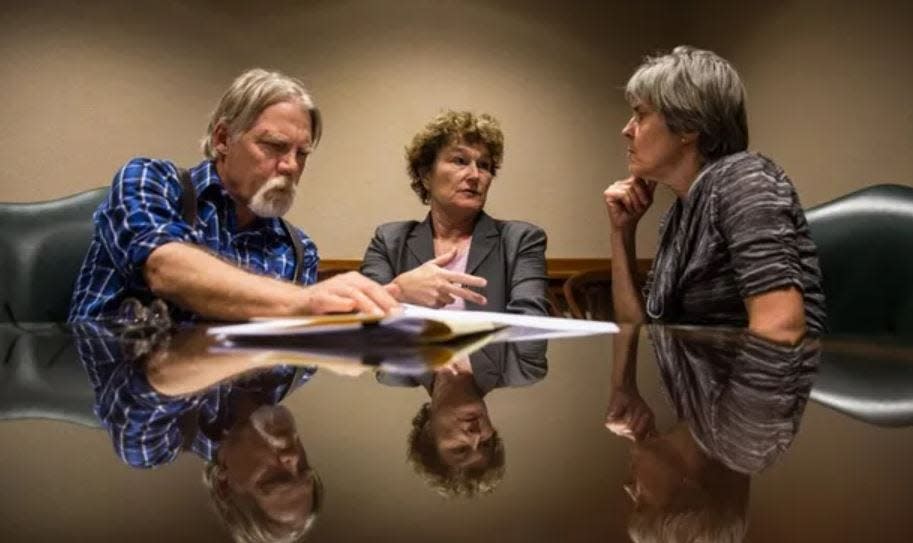AUSTIN — Anything that rolled onto the showroom floor shiny and new in 1973 is bound to have picked up its share of rust, dings and dents in its 50-year journey to the present.
And so it is with the Texas law that began as a model for the nation because it began with a simple premise: The paperwork government generates, the meetings elected and appointed leaders hold and the money that governments at every level spend is open to public inspection except in the narrowest of circumstances.

The law was enacted by the reform-minded Legislature that took office in the wake of the public corruption scandal known in shorthand as Sharpstown that included allegation stock fraud, bribery and sundry other examples of malfeasance. But over the decades since, politicians being politicians and bureaucrats being bureaucrats, governments have found work-arounds to keep much of the public’s business private.
The list of available exceptions to public disclosure has expanded and, in many cases, governments have found that they can take advantage of legal delays when asked to provide requested information, including seeking opinions from the Texas Attorney General’s Office on whether they have to comply with the Public Information Act at all.
State Rep. Todd Hunter, a longtime Corpus Christi Republican who’s played legislative whack-a-mole to close loopholes that pop up with some regularity, expressed some exasperation during a conference Thursday by the Freedom of Information Foundation of Texas to mark the 50th anniversary of what’s often called the state “sunshine law.”
“The process isn’t supposed to be an obstacle course,” Hunter said during a panel discussion on ways that might help strengthen and modernize laws pertaining to open government.
The foundation’s conference was well represented by news organizations, several of which helped underwrite the cost, in no small measure because reporters rely on the Public Information Act as they go about the business of covering local city councils, school boards, county commissioners’ courts, the Texas Legislature and other entities paid for by taxpayers and established to protect the public’s interest.
Several years ago, news organizations were flummoxed when the Texas Supreme Court interpreted the Public Information Act as granting governmental bodies authority to keep from the taxpayers how much money they spend on things like hiring a big-name entertainer to perform at civic celebrations. The notion was that a performer’s compensation package was on par with the trade secrets of a company that manufactures some of the world’s sophisticated passenger airliners.
Hunter was instrumental in finally closing that loophole in 2019. “What’s wrong with the public knowing what’s going on?” he said Thursday. “They paid for it.”

But the Public Information Act is not only important to news organizations and the journalists they hire. Robert and Kathy Dyer, who were speakers at the foundation’s conference, were very much anonymous and ordinary Texans in in 2013 when they learned that their son, Graham, died while in the custody of police in the Dallas suburb of Mesquite.
Graham Dyer, a week short of his 19th birthday, took LSD while hanging out with some friends. The experience did not go well, his parents recalled. His behavior was unruly. Police were called. Graham was tased by officers in the effort to control his actions. Once in jail, Graham was found unconscious in his cell and taken to the hospital where he died.
His parents wanted to find out the complete story of the events that led to their son’s death. The police wouldn’t tell them. And they didn’t have to. Another legal loophole allowed law enforcement agencies to withhold the details of investigations that don’t result in the conviction or deferred adjudication of suspect. The idea was to protect the privacy of wrongly accused people, or at least those who could not be proven guilty.
But a suspect who dies in custody never gets to court. No possibility of conviction or deferred adjudication, so no public disclosure of what happened between arrest and death unless they police agencies want to make the files public.
The Dyers said they hired lawyers to force the disclosure without success. But they did catch a break. The feds looked into the circumstances of Graham’s death. And although they found no evidence police misconduct, much of their investigation was made public and handed over to the Dyers under federal sunshine laws.
But the Dyers didn’t just take that small victory and go about their private lives. During the legislative sessions since Graham’s death they lobbied the Legislature close the so-called “dead suspects loophole” in the Public Information Act so other families in their would not have to get tangled up by the “obstacle course” that Hunter had alluded to.
Finally this year, the Legislature closed the loophole. But not before the Dyers told their story to several news organizations, which helped focus attention on the benefits of prying information that rightfully belongs to the public out of the hands of governmental entities that would prefer to keep such details under seal.
Craig Garnett, the owner and publisher of the Uvalde News-Leader, has been fighting a battle similar to that of the Dyers, but on a larger scale. His newspaper, along with countless of other news outlets across Texas and some out of state, has still not been given a full account of what happened May 24, 2022, when 19 school children and two of their teachers were gunned down inside Uvalde’s Robb Elementary School.
More: Kimberly Mata-Rubio, mom of slain Robb Elementary student, announces run for Uvalde mayor
“Time keeps slipping by as these families wait to hear what happened to their children,” Garnett said at the conference. “But we’re keeping it alive in our paper.”
Garnett, who raised his own family in Uvalde and has been the South Texas town’s top journalist since 1989, said his twice-weekly newspaper will keep pushing the government to release all of the information it has collected on the shooter, the rampage and the myriad missteps by law enforcement no matter the cost.
And the News-Leader’s determination has come with some cost. “We don’t have as many friends (in local government) as we used to,” Garnett said.
Robert Dyer said the value of the effort by news outlets to shed light on the Uvalde tragedy and his own family’s ordeal is immeasurable to a society built on the principle that the people are in charge of the government led by the people they elect and paid for by the money they earn.
“We have the greatest experiment on the face of the Earth with our government,” he said. “But it’s a fragile little mechanism. Without the press asking these tough questions these entities can do whatever they want. It’s the freedom of the press that guarantees our freedom.”
John C. Moritz covers Texas government and politics for the USA Today Network in Austin. Contact him at jmoritz@gannett.com and follow him on X, formerly called Twitter, @JohnnieMo.
This article originally appeared on Corpus Christi Caller Times: Is the 1973 Texas Public Information Act keeping up with the times?
